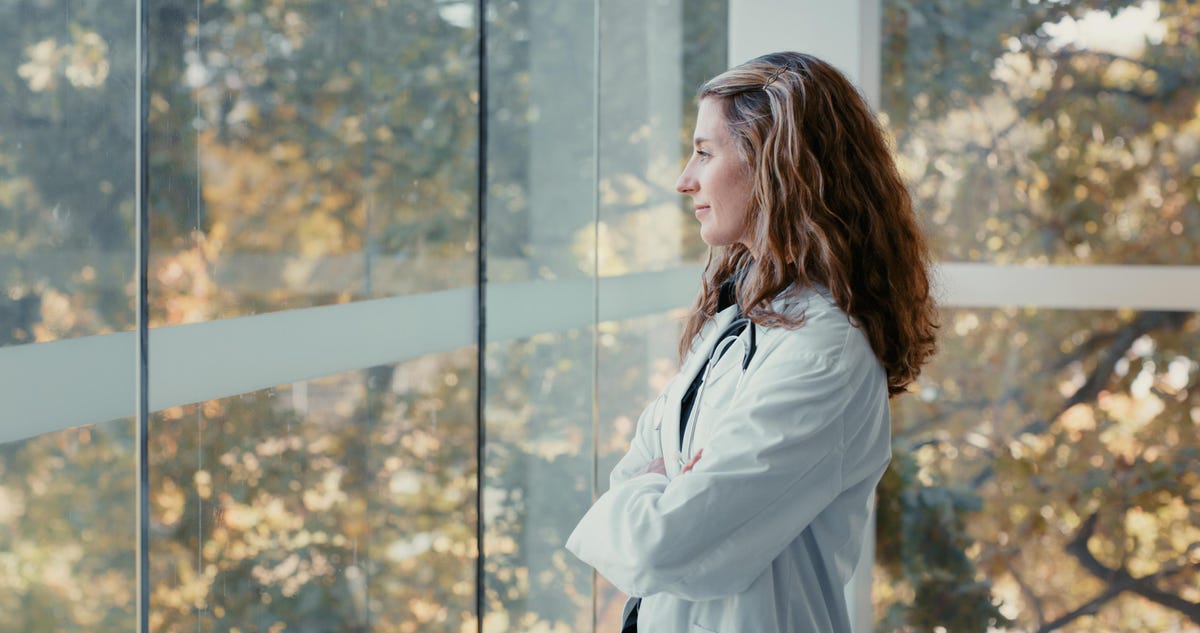The health of people and the health of the planet are inextricably linked.
By taking urgent action today, we can ensure a livable future for our children and grandchildren. This is the rallying cry of the latest report of the Intergovernmental Panel on Climate Change. The report stresses that greenhouse gas emissions must be cut by nearly half by 2030 if we are to succeed in keeping global warming to 1.5°C above pre-industrial levels.
So what can leaders actually do to ensure the long-term survival of our planet? One sector that seems to have a natural alignment with a healthier world is the healthcare sector. After all, climate change and biodiversity loss have potentially devastating implications for human health.
Nigel Sullivan, director of sustainability and human resources at British healthcare company Bupa, points out that the health of people and the health of the planet are closely linked. “We’ve been looking after people’s health for over 75 years, but we can’t continue to do our job if we don’t also look after the health of the planet,” he explains. “That’s why our company took the planet as our last patient.”
Bupa has launched its own internal Sustainability Academy to improve the skills of its people – from individuals in leadership positions to those most responsible for influencing the company’s carbon impact. “By improving their understanding of climate-related issues and how they can drive real change, they can help achieve our Sustainable Development Goals,” Sullivan says. “We have also created talent programs that encourage employees to develop their knowledge of sustainability issues and take an innovative approach to solving them.”
Sullivan argues that if organizations are to successfully transition to a net zero future, they need a “transformation mindset” that runs through all teams. He explains: “This means that the entire organization must take ownership of progress in reporting and reducing its carbon footprint, across all functions: from procurement, technology, risk and finance, from mergers and acquisitions, to real estate, and for companies like Bupa, clinical and actuarial teams too.
Environment and clinical care
Dr. Fiona Adshead, Chair of the Sustainable Healthcare Coalition, believes that clinical leadership can play a central role in the net zero transformation of healthcare. She says, “We need to rethink the rules of the system so that every patient care decision promotes the best health outcomes while considering its impact on the environment.
According to Adshead, healthcare professionals are understandably curious about the environmental impact of their care. “Clinicians care deeply about their patients and their home on the planet, and want to improve the care they provide,” she explains. “We’ve found they are easily engaged by giving them easy-to-use tools to help them make more environmentally conscious healthcare decisions.”
Additionally, collaborative leadership has proven instrumental in bringing about change. Adshead explains, “We’ve found that our approach of bringing clinicians, industry and healthcare providers together to focus on solving clinical care delivery issues really frees up energy and leads to conversations. open and honest that foster innovation.
Engage employees on sustainability
It’s important to remember that individual mindsets play a huge role in deciding whether a sustainability agenda comes to life within an organisation, says Dr Sally Uren OBE, chief executive of charity Forum for the Future.
“The most effective sustainability strategies are those that permeate all parts of an organization and feel relevant to everyone, albeit in different ways,” she says. “Sustainability is not a tick box exercise. True sustainability is about deep transformation; it is often a change of culture. It is unrealistic to expect the organization to think and act differently when it comes to sustainability without workforce engagement.
Uren adds that leadership plays a critical role in modeling the approach and attitude needed for ambitious sustainability strategies. “Support at the board level is essential,” she notes. “Visible leadership from those with power and responsibility as well.”

